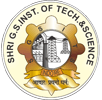Vision
To create, share and apply knowledge to produce IT technocrats for a globalized, technologicalsociety, through high quality teaching, learning, innovation and research
Mission
M1: To impart quality and value based education in Information Technology to enable studentsto solve real world problems with an inclination towards betterment of society.
M2: To build a centre of excellence on frontier areas of Information Technology and relatedareas of research.
M3: To develop world class technocrats to cater the growing manpower demands and needs ofthe industry for economic development of the state and the country.
Program Educational Objectives (PEOs)
[PEO1] Prepare engineering graduates to become empowerment IT technocrats withcomprehensive knowledge and skills to serve the evolving IT industry.
[PEO2] To empower graduates to pursue higher education and research.
[PEO3] Develop skills to become an entrepreneur by observing global changes and needs.
[PEO4] To prepare engineering graduates who are conditioned to handle challenging tasks as anindividual or as a team.
List of Program Outcomes (POs).
|
PO 1 : |
Engineering knowledge: Apply the knowledge of computing, mathematics andengineering fundamentals to solve complex problems in IT domain. |
|
PO 2 : |
Problem analysis:Identify and analyze the complex problems related to IT andable to formulate/model appropriate solutions for it. |
|
PO 3 : |
Design/Development of solutions:Design and develop solutions for complexengineering problems of IT; design system components or processes that meet thespecified needs with appropriate consideration for the public health and safety andthe cultural, societal and environmental considerations. |
|
PO 4 : |
Conduct Investigations of Complex problems:Use research–based knowledgeand research methods including design of experiments, analysis and interpretationof data, and synthesis of the information to provide valid conclusions. |
|
PO 5 : |
Modern Tool Usage:Create, select and apply appropriate techniques, resourcesand modern engineering and IT tools including prediction and modelling to solveinformation technology related complex engineering problems. |
|
PO 6 : |
The engineer and society:Apply Reasoning informed by the contextualknowledge to assess the local and global society issues relevant to IT professionalpractice. |
|
PO 7 : |
Environment and sustainability:Understand the impact of the professionalengineering solutions in societal and environmental contexts, and demonstrate theknowledge of, and need for sustainable development. |
|
PO 8 : |
Ethics: Apply ethical principles and commit to professional ethics andresponsibilities and norms of the engineering practice. |
|
PO 9 : |
Individual and team work:Function effectively as an individual, and as amember or leader in diverse teams, and in multidisciplinary settings. |
|
PO 10 : |
Communication:Communicate effectively on complex engineering activities withthe engineering community and with society at large, such as, being able tocomprehend and write effective reports and design documentation, make effectivepresentations, and give and receive clear instructions. |
|
PO 11 : |
Project management and finance:Demonstrate knowledge and understanding ofthe engineering and management principles and apply these to one’s own work, asa member and leader in a team, to manage projects and in multidisciplinaryenvironments. |
|
PO 12 : |
Life-long learning:Recognize the need for, and have the preparation and ability toengage in independent and life-long learning in the broadest context oftechnological change. |


